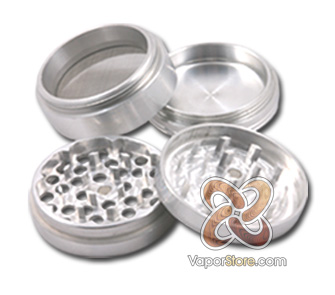I was flipping through my collection of drug-related books and articles and I found that quite a few were related to grapefruit juice. Grapefruit juice? That sounds like my experience with mangoes amplifying a trip, which I wrote about
here if you're curious. I thought maybe there was some correlation, so I investigated furthur.
Drug bioavailability is the percentage of a drug that you ingest that actually makes it to its biological target. When you take a drug orally, whether it's LSD or aspirin, some of it is metabolized (digested & taken apart) before it can reach your bloodstream. If you inject a drug, its bioavailability is 100%. Grapefruit juice will increase the bioavailability of certain drugs by interfering with the metabolizing process, and therefore increase their effectiveness and potency.
Scientists first discovered this when they were experimenting with the effects of mixing alcohol and another drug, felodipine. With their test subjects, they used grapefruit juice to mask the flavor of the alcohol mix as they drank it, and it ended up increasing the bioavailability of the felodipine. Even a single glass of grapefruit juice, taken within 24 hours of the administered dose, will create these effects.
Other scientists found that cytochrome, which occurs naturally in the small intestine and is responsible for the metabolizing of certain molecules, is what the grapefruit juice inhibits. Though it's not known exactly what chemical in the juice causes it, they have narrowed it down to a few theories: naringin (which doesn't occur in other fruit juices and is known to limit metabolism), quercetin, kaempferol, furanocoumarians, and bergamottin. In case you were curious.
What does this mean for recreational drug use? Well, unfortunately, not much. Though it increases bioavailability in a variety of substances, it doesn't do so for all of them. One chemical it does affect is setraline, also known as Zoloft. It is a Selective Serotonin Reuptake Inhibitor, or SSRI, meaning that it prevents your body from reabsorbing and metabolizing serotonin, a neurological chemical that plays a part in keeping you happy. By keeping more serotonin active in your body, your mood stabilizes. By increasing the bioavailability of SSRIs, grapefruit juice makes them more potent. LSD also functions by serotonin-- it blocks serotonin's receptors because of its similar shape. Therefore, grapefruit juice shouldn't have an effect on LSD and related hallucinogens, unless you're taking an SSRI already, and then it will make the LSD even less effective.
Of course, I am not a biologist or a chemist; just a careful reader and researcher. If I drew an incorrect conclusion or you know something more on the matter, please tell me in the comments and I will edit the post.
tl;dr: To the best of my knowledge, grapefruit juice will not make hallucinogens any more potent, and will actually decrease potency furthur if one is already taking an SSRI.
Source:
Food-drug interaction: grapefruit juice augments drug bioavailability-- mechanism, extent and relevance
by A. Dahan and H. Altman













